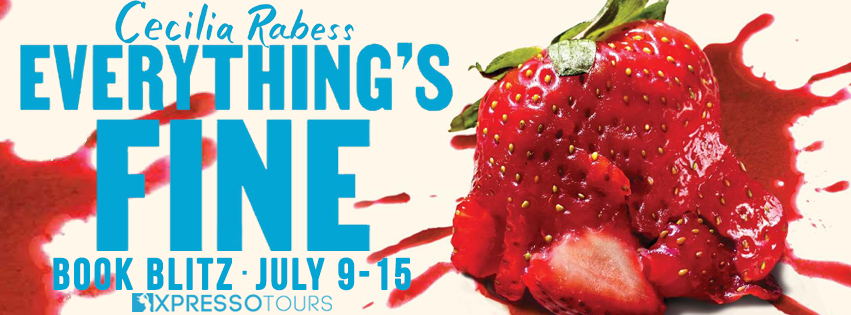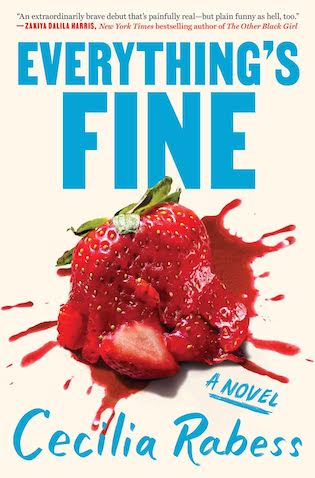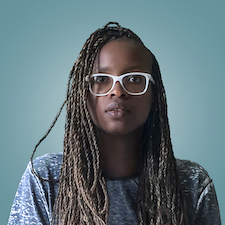
Non fiction
Date Published: July 10, 2023
Publisher: Hay House Publishing
Overcome perfectionism and self-doubt by unapologetically embracing your
fully awesome self—flaws and all—with the co-founder of
Mindvalley, a global school that delivers transformational education for all
ages.
It’s odd to think that we can simultaneously be living as ourselves
without ourselves. As life happens, we fall in love with the idea of who we
could be instead of with who we actually are—leaving parts of
ourselves behind and losing sight of what and who is truly important within
ourselves.
By sharing revelatory personal anecdotes and reflection prompts, Kristina
Mänd-Lakhani, co-founder of Mind Valley, helps to guide you
toward:
- Finding your own truth despite the external and internal critics
- Transforming from the Perfect You into the Real You
- Embodying a life where no one needs fixing
Reclaim your happiness as your gift to the world and take the first steps
to living truthfully within your flawesomely beautiful reflection.
Praise for Becoming Flawesome
“Kristina Mänd-Lakhani takes us on an inward journey toward
authenticity, with the conviction that positive change within and without
can only come from there. Reading her book, I was reminded of the secret
revealed by the Little Prince, that what is essential cannot be seen with
the eyes but with the heart. Here, you can learn to experience who you
really are, and how to accept that genuine person, using well thought out
exercises, and bearing in mind that it all begins simply by practising
awareness.”
- Princess Rym Ali, President of the Anna Lindh Foundation
"Becoming Flawesome is full of timely wisdom for those who want to
live their perfect imperfect life."
- Jim Kwik, New York Times bestselling author of Limitless
"Becoming Flawesome is a roadmap to deep self-awareness, radical
self-acceptance and genuine self-love. An inspiring read for any individual
prepared to embark on a journey towards their truest selves."
- Dr. Shefali, New York Times bestselling author and clinical
psychologist
“Becoming Flawesome is a brilliant gift for anyone who has ever
doubted their strength and power to create a life that is unapologetically
their own. Kristina Mänd-Lakhiani inspires the courage and conviction
we need to live lives of deep integrity, joy and truth."
- Katherine Woodward Thomas, NY Times Bestselling Author of Calling in
"The One" and Conscious Uncoupling
“Becoming Flawesome is a refreshingly honest, insightful, and
liberating book... one which frees you from the prison of beliefs and values
guaranteed to destroy your Spirit, and gently walks you back to the safety
sanity and lasting success of your heart.”
- Sonia Choquette, New York Times bestselling author of The Answer is
Simple: Love Yourself, Live your Spirit!
“Becoming Flawesome gives a powerful insight into the prospect of
nurturing a healthy relationship with the most important person in our
lives: ourselves. Beautifully written and authentically delivered by
Kristina it's a must-read for anyone working on improving their self-
worth.”
- Marisa Peer, bestselling author of Tell Yourself a Better Lie and a
leading therapist
Excerpt
The Key to Living an Imperfectly Authentic Life
Introduction
Let’s Begin
It is a truth universally acknowledged, that a good book has to start with
a proper introduction.
And by “proper” I mean that it has to prime the reader for the
journey, raise excitement and set expectations, explain the process, and make reading the book an experience
both profitable and smooth. After all, we are about to spend some time together on this
journey.
Therefore, I was not surprised when on the first meeting with my publisher
I was asked if I would consider writing a proper introduction to my book. You see—the
original manuscript started with a story of me pondering my future book while standing in the shower,
warm water running down my back, and my finger absentmindedly drawing random patterns on the
fogged-up glass.
I started this book during the long years of successive COVID confinements,
and I was planning to self-publish it because I wanted the freedom to make decisions about the
book—how to write, what to write, what stories to include, what kind of experience to offer to
my reader. So, naturally, it wasn’t following any universally acknowledged truths or
conventions.
Yet, by the time I had to present my book-baby to the world, I felt that I
wanted to give it the best possible future, and I had to face the big decision between my heart
and my brain: Will it be self-published (heart), or will I work with a traditional publisher
(brain)? Going the traditional way meant facing more choices between my quirky and obstinate self-expression
and conventional ways of doing things.
This book is about finding your way back to yourself, about understanding
who you really are, accepting your dents and scratches, your quirky uniqueness and even your
flaws. It is about thriving in being unapologetically you, most flawesomely.
This book has been through the hands of several editors ever since I put
the last stop on its original manuscript. This journey has been both emotional and
transformative for me. I had to face my biggest dragon by far—my obstinate need for pure
self-expression—over and over again.
When do you follow convention, and when do you stick to your own principles
and values?
There is no simple answer to this question, except: you have to learn to
balance.
If you follow all the rules that your peers expect you to follow, you bet
all there is on a slim chance of the grand prize, but you do it at the price of your own unique
self-expression. At times, I felt like I had to “sell my soul to the devil” for a chance at
success.
But if you obstinately stick to your own unique quirks and principles, you
might end up being unheard and misunderstood so universally that there is no point in writing
a book. For it is the readers who make a writer. Without the readers, a book is just a private
diary.
Reader, will you judge me if I tell you that this book is a delicate
balance between convention and my own uniqueness? Of course, I want you to succeed. But I cannot give
you the proper introduction to my book because every book is a journey. This book has been
my journey, and now it is yours. I walked my path to my true self, to understanding what
makes me truly me . . . and what of that unique quirkiness is simply noise. You see, your flaws and
your dragons are there for a reason—they make you who you are, but they also hold the key to
your biggest value, to your mightiest strengths, if you choose to look your dragons in the
eye.
Now I am hoping that you will take this journey with me to your unique
destination—to finding the path back to you. I will be your companion on this journey, but it is
yours to take.
So why wouldn’t I tell you what’s ahead? Imagine if Gandalf
told Bilbo Baggins that on his journey, he would encounter trolls, go through a perilous enchanted forest,
and face a dragon in a far-away mountain.1 Wouldn’t that be a bit of a spoiler?
I want you to take this journey back to you without any spoilers, with an
open heart, and trust that the destination is going to be worth your effort. Because becoming
flawesome is the best gift you can give to yourself.
So, if you are ready, let’s begin!
About the Author

Kristina Mänd-Lakhani is an international speaker, entrepreneur,
artist, philanthropist, and mother of 2 kids. As a co-founder of
Mindvalley, a leading publisher in the personal growth industry, Kristina
dedicated the last 20 years of her career from teachers like Michael
Beckwith, Bob Proctor, Lisa Nichols, and many more.
She started her career in a government office in her native Estonia and, by
her mid-20s, achieved a level of success mostly known to male politicians at
the end of their careers. It was shortly after that Kristina and her
then-husband Vishen founded Mindvalley. From a small meditation business
operating out of the couple’s apartment in New York, the company
quickly grew into a global educational organization offering top training
for peak human performance to hundreds of thousands of students all around
the world.
Kristina believes life is too important to be taken seriously and makes
sure to bring fun into every one of her roles: as a teacher, mother,
entrepreneur, philanthropist, and world traveller. Kristina helps her
students to virtually hack happiness by taking them through her unique
framework - “Hacking happiness” - a unique framework of
balancing your life, taking in every moment, and paying close attention to
the small daily choices.
Kristina is also the author of three transformational quests - "7 Days
To Happiness", "Live By Your Own Rules.” and "The Art
of Being Flawesome". Kristina talks about personal transformation,
authenticity, understanding and accepting oneself, and a path to
happiness.
In July 2023, with the help of Hay House Publishing, Kristina releases her
very first book - "Becoming Flawesome" #BecomingFlawesome. In her
book, Kristina shares her own journey from being on top of a personal growth
empire like Mindvalley to stepping aside, conscious uncoupling from her
husband, and walking her path towards being more honest with herself.
Contact Links
Website
Facebook
Instagram
LinkedIn
Purchase Links
Amazon
Mind Valley




























